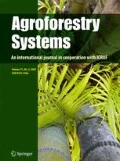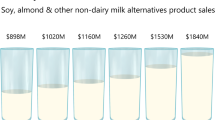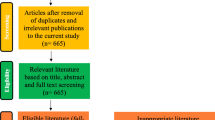Abstract
Global warming has turned as a global concern for especially those who engaged in animal agriculture. The use of non-conventional feedstuff (e.g., plants and plant extracts) has also become an interesting topic since they are natural products, environmentally friendly and safe in food production. These potential feed additives are rich sources of secondary compounds. The ideal effects of these plant secondary compounds on ruminant would be to reduce methane (CH4) production with no negative effect on rumen fermentation characteristics. The aim of the present review was to summarize the related studies from published papers in recent years. Based on published data, plants and plant extracts of various origins have shown to inhibit ruminal CH4 production (methanogenesis) when fed to ruminants either as forages or as extracts tested in vitro or in vivo. The suppressed methanogenesis was mostly attributed to improving fermentation characteristics (e.g., increase in propionic concentration) as well as antimethanogenic and antiprotozoal activities of these feedstuff. However, it should be noted that the effectiveness of these feed additives depends on the source, type and level at which they are being used. In conclusion, plants and plant extracts seem promising as feed supplements for ruminant nutrition.
Similar content being viewed by others
References
Anantasook N, Wanapat M, Cherdthong A (2014) Manipulation of ruminal fermentation and methane production by supplementation of rain tree pod meal containing tannins and saponins in growing dairy steers. J Anim Physiol Anim Nutr 98:50–55
Bhatta R, Saravanan M, Baruah L, Sampath K (2012) Nutrient content, in vitro ruminal fermentation characteristics and methane reduction potential of tropical tannin-containing leaves. J Sci Food Agri 92:2929–2935
Bhatta R, Baruah L, Saravanan M, Suresh KP, Sampath KT (2013) Effect of medicinal and aromatic plants on rumen fermentation, protozoa population and methanogenesis in vitro. J Anim Physiol Anim Nutr 97:446–456
Bhatta R, Saravanan M, Baruah L, Prasad CS (2014) Effects of graded levels of tannin-containing tropical tree leaves on in vitro rumen fermentation, total protozoa and methane production. J Appl Microbiol 118:557–564
Bodas R, Prietoa N, García-Gonzálezb R, Andrésa S, Giráldeza FJ, López S (2012) Manipulation of rumen fermentation and methane production with plant secondary metabolites. Anim Feed Sci Technol 176:78–93
Chaves AV, Baah J, Wang Y, McAllister TA, Benchaar C (2012) Effects of cinnamon leaf, oregano and sweet orange essential oils on fermentation and aerobic stability of barley silage. J Sci Food Agric 92:906–915
Cieslak A, Szumacher-Strabel S, Oleszek W (2013) Plant components with specific activities against rumen methanogens. Animal 7:253–265
Durmic C, Moate PJ, Eckard R, Revell DK, Williams R, Vercoe PE (2014) In vitro screening of selected feed additives, plant essential oils and plant extracts for rumen methane mitigation. J Sci Food Agric 94:1191–1196
Giuburunca M, Criste A, Cocan D, Constantinescu R, Raducu C, Miresan V (2014) Methane production in the rumen and its influence on global warming. Pro-Environment 7:64–70
Hatew B, Stringano E, Harvey M, Hendriks WH, Hayot C, Smith C, Pellikaan W (2015) Impact of variation in structure of condensed tannins from sainfoin (Onobrychis viciifolia) on in vitro ruminal methane production and fermentation characteristics. J Anim Physiol Anim Nutr. https://doi.org/10.1111/jpn.12336
Jafari S, Goh YM, Rajion MA, Jahromi MF, Ebrahimi M (2016a) Manipulation of rumen microbial fermentation by polyphenol rich solvent fractions from papaya leaf to reduce green-house gas methane and biohydrogenation of C18 PUFA. J Agric Food Chem 64(22):4522–4530
Jafari S, Goh YM, Rajion MA, Jahromi MF, Ebrahimi M (2016b) Ruminal methanogenesis and biohydrogenation reduction potential of papaya (Carica papaya) leaf: an in vitro study. Ital J Anim Sci 15:157–165
Jafari S, Goh YM, Rajion MA, Jahromi MF, Ebrahimi M (2017) Papaya (Carica papaya) leaf methanolic extract modulates in vitro rumen methanogenesis and rumen biohydrogenation. J Anim Sci 88(2):267–276
Jafari S, Goh YM, RajionMA, Ebrahimi M (2018) Effects of polyphenol rich bamboo leaf on rumen fermentation characteristics and methane gas production in an in vitro condition. Indian J Anim Res. Online ISSN: 0976-0555
Jayanegara A, Wina E, Takahashi J (2014) Meta-analysis on methane mitigating properties of saponin-rich sources in the rumen in vitro: influence of addition levels and plant sources. Asian Aust J Anim Sci 27:1426–1435
Kholif AE, Gouda GA, Morsya TA, Salem AZM, Lopez S, Kholif AM (2015) Moringa oleifera leaf meal as a protein source in lactating goat’s diets: feed intake, digestibility, ruminal fermentation, milk yield and composition, and its fatty acids profile. Small Rumin Res 129:129–137
Kongmun P, Wanapat M, Pakdee P, Navanukraw C (2010) Effect of coconut oil and garlic powder on in vitro fermentation using gas production technique. Livest Sci 127:38–44
Kongmun P, Wanapat M, Pakdee P, Navanukraw C, Yu Z (2011) Manipulation of rumen fermentation and ecology of swamp buffalo by coconut oil and garlic powder supplementation. Livest Sci 135:84–92
Kumar S, Choudhury PK, Carro MD, Griffith GW, Dagar SS, Puniya M, Calabro S, Ravella SR, Dhewa T, Upadhyay RC, Sirohi SK, Kundu SS, Wanapat M, Puniya AK (2013) New aspects and strategies for methane mitigation from ruminants. Microbiol Biotechnol, Appl. https://doi.org/10.1007/s00253-013-5365-0
Medjekal S, Bodas R, Bousseboua H, Lopez S (2017) Evaluation of three medicinal plants for methane production potential, fiber digestion and rumen fermentation in vitro. Energy Proc 119:632–641
Naumann HD, Lambert BD, Armstrong SA, Fonseca MA, Tedeschi LO, Muir JP (2015) Effect of replacing alfalfa with panicled-tick clover or sericea lespedeza in corn-alfalfa-based substrates on in vitro ruminal methane production. J Dairy Sci 98:3980–3987
Rira M, Chentli A, Boufener S, Boussebou H (2015) Effects of plants containing secondary metabolites on ruminal methanogenesis of sheep in vitro. Energy Proc 74:15–24
Salem AZM (2012) Plant bioactive compounds in ruminant agriculture—impacts and opportunities. Anim Feed Sci Technol 176:1–4
Salem AZM, Kholif AE, Elghandour MY, Hernandez SR, Domínguez-Vara IA, Mellado M (2014) Effect of increasing levels of seven tree species extracts added to a high concentrate diet on in vitro rumen gas output. Anim Sci J. https://doi.org/10.1111/asj.12218
Thao NT, Wanapat M, Kang S, Cherdthong A (2015) Effects of supplementation of eucalyptus (E. camaldulensis) leaf meal on feed intake and rumen fermentation efficiency in swamp buffaloes. Asian Aust J Anim Sci 28:951–957
Wanapat M, Kang S, Polyorach S (2013a) Development of feeding systems and strategies of supplementation to enhance rumen fermentation and ruminant production in the tropics. J Anim Sci Biotechnol 4:32
Wanapat M, Kang S, Khejornsart P, Wanapat S (2013b) Effects of plant herb combination supplementation on rumen fermentation and nutrient digestibility in beef cattle. Asian Aust J Anim Sci 26:1127–1136
Wanapat M, Chanthakhoun V, Phesatcha K, Kang S (2014) Influence of mangosteen peel powder as a source of plant secondary compounds on rumen microorganisms, volatile fatty acids, methane and microbial protein synthesis in swamp buffaloes. Livest Sci 162:126–133
Acknowledgements
The authors are thankful to Ratchadapisek Somphot Fund for Postdoctoral Fellowship, Chulalongkorn University and University of Putra in Malaysia.
Author information
Authors and Affiliations
Corresponding author
Additional information
Publisher's Note
Springer Nature remains neutral with regard to jurisdictional claims in published maps and institutional affiliations.
Rights and permissions
About this article
Cite this article
Jafari, S., Meng, G.Y., Rajion, M.A. et al. The use of plant by-products as non-conventional feedstuff for livestock feeding with reference to rumen methanogenesis. Agroforest Syst 94, 1491–1500 (2020). https://doi.org/10.1007/s10457-019-00426-z
Received:
Accepted:
Published:
Issue Date:
DOI: https://doi.org/10.1007/s10457-019-00426-z




